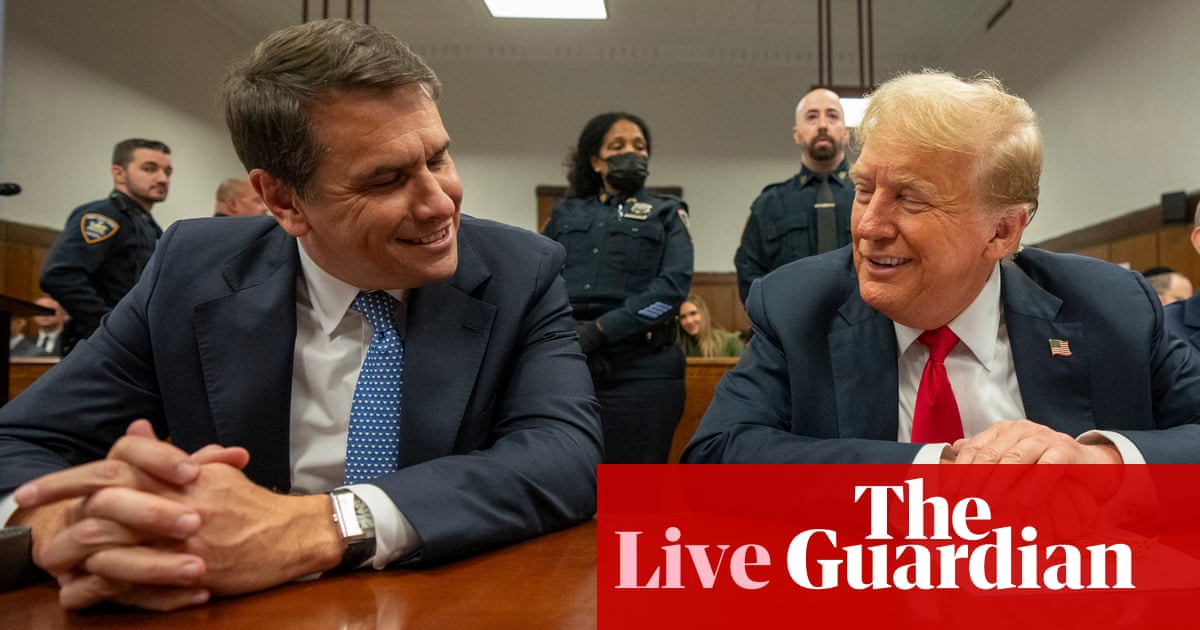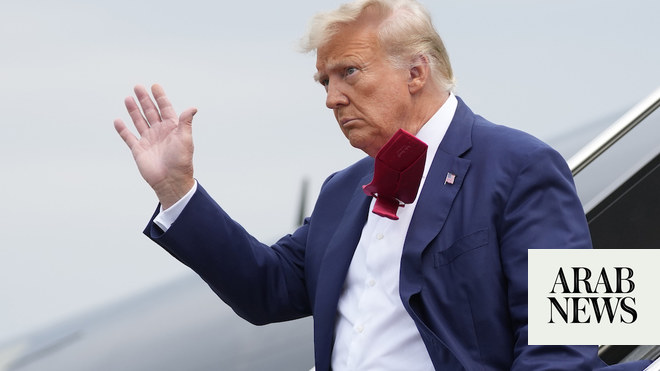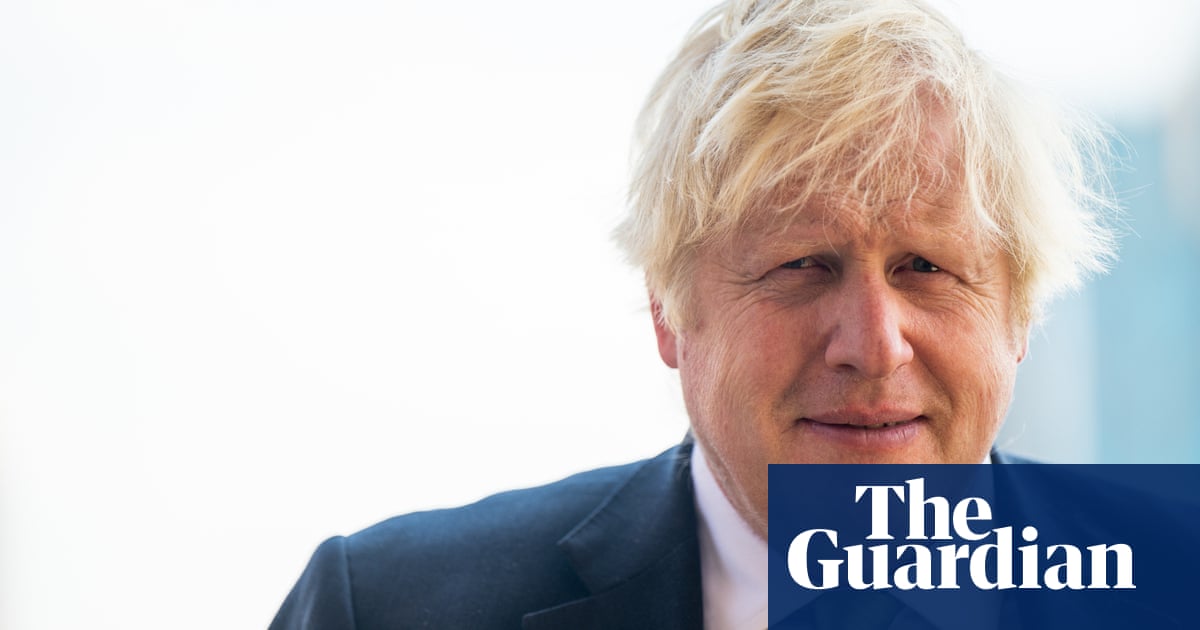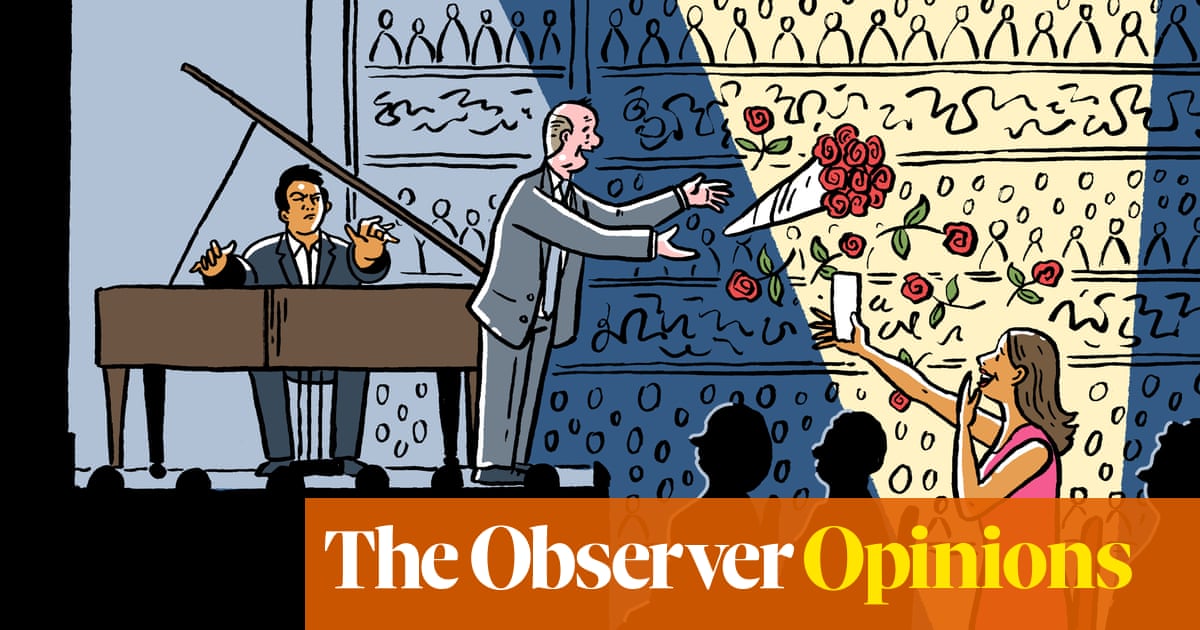
Each story Trump tried to have buried amounts to unlawful campaign contribution, prosecutor argues
Donald Trump’s frugality has been referenced several times as Joshua Steinglass tries to convince the jury that Trump falsified legal documents to cover up repayment to Michael Cohen for allegedly paying hush money to Stormy Daniels.
Steinglass argues that Trump was deeply involved in financial decisions before and during his presidency. “The defendant remained involved even with minor decisions about where his money was going,” Steinglass said. “Mr Trump wanted to retain control over his $80 cable bill because that is who he is … that is who he’s been from the very beginning, he’s frugal,” Steinglass said.
To underscore Trump’s self-professed involvement in his finances Steinglass pointed to an excerpt from one of his books:
As I said before, I always sign my checks, so I know where my money’s going. In the same spirit. I also always try to read my bills to make sure I’m not being over-charged.
To drive home the claim that Cohen repaid for the hush money he gave to Stormy Daniels and not for legal services, Steinglass is pointing to Cohen’s claim that he did perhaps 10 hours of legal work for Trump and his family in 2017.
“Cohen spent more time being cross-examined at this trial than he did doing legal work for Donald Trump in 2017. Do you think Donald Trump would spend $42,000 an hour on legal work?” Steinglass said, referring to the total $420,000 in payouts Cohen received that year.
Prosecutor Joshua Steinglass is now trying to drive home Trump’s involvement in covering up payments made to Stormy Daniels and subsequent repayment to Michael Cohen. Steinglass referenced a 2017 meeting at Trump Tower, attended by Trump, Cohen, and former Trump Organization chief financial officer Allen Weisselberg. Cohen alleged that his repayment was discussed and that Trump, who was present, gave the OK for repayment.
Cohen was ultimately given a check for $420,000 that Trump’s legal team said was for services Cohen rendered as Trump’s attorney.
“I’m almost speechless that they’re still trying to make the arguments that in 2017 the payments were for services rendered,” Steinglass said, pointing to handwritten notes that said to “gross up” Cohen’s payment.
After a 20-minute break, prosecutor Joshua Steinglass is resuming his hours-long closing statement in Donald Trump’s hush-money trial.
Steinglass argues that former Trump attorney Michael Cohen, who had been griping openly with those in his circle that he hadn’t been repaid for the $130,000 he gave to Stormy Daniels, was a liability for Trump. Trump knew that he couldn’t just write a check for 130,000, “so enter the false business records”, Steinglass told jurors.
We talked about the conspiracy to influence the election and even after Mr Trump got elected, he still had to make sure no one found out about the conspiracy. But here’s the problem – Michael Cohen was out $130,000.
Trump"s "primary concern was not his family, but the election", says prosecutor
Prosecutor Joshua Steinglass said there was no surprise that the hush-money payment to Stormy Daniels didn’t take place until two weeks before the 2016 election, even though the encounter with Donald Trump took place in 2006, Reuters reported.
Steinglass said:
And that’s because the defendant’s primary concern was not his family, but the election.
It was a scenario that Donald Trump, in his pre-presidential celebrity days, might have relished; as he sat inside a Manhattan courtroom, Robert De Niro was waiting outside.
But this was politics and De Niro, the pugnacious star of myriad Hollywood gangster films, was there not to pay homage to the former president as a fellow VIP, but to diss him in terms that might have been in place in Goodfellas or Mean Streets.
Introduced by the Biden campaign communications director, Michael Tyler, De Niro – a vitriolic critic of Trump who has provided the voiceover for a new 30-second advertisement warning of the perils of his return – adapted to the role with professional aplomb.
“This is my neighbourhood, downtown New York City. I grew up here and feel at home in these streets,” the 80-year-old Oscar winner said outside the New York courthouse, before remarking on the strangeness of Trump being in a courtroom across the street, “because he doesn’t belong in my city”.
Prosecutor says Stormy Daniels undermined Trump"s strategy of spinning Access Hollywood tape
Prosecutor Joshua Steinglass, continuing to double down on motive, goes back to the timeline: after the debate, which happened shortly after the Access Hollywood tape, women came forward accusing Trump of sexual misconduct.
Hope Hicks, Steinglass said, testified that “the defendant knew there was a crisis”.
“You really can’t understand this case without appreciating the climate,” Steinglass said of the Access Hollywood tape fallout.
“It caused pandemonium” in the campaign. This is why Trump so desperately needed the hush-money payment, Steinglass said. “He was negotiating to muzzle a porn star” who was threatening to go public.
Stormy Daniels was a walking, talking reminder that the defendant was not only worse – she would have totally undermined his strategy for spinning the Access Hollywood tape.
Prosecutor Joshua Steinglass notes that the Trump campaign put out a statement after the release of the Access Hollywood tape that described his comments as “locker-room” talk.
Steinglass said that Trump also tweeted out a video the next day to “try and stop the bleeding”.
Trump said in the video:
I’ve said some foolish things but there’s a big difference between the words and actions of other people.
Prosecutor turns to Access Hollywood tape impact on Trump campaign
Prosecutor Joshua Steinglass is resuming his closing. He’s talking about the impact of the Access Hollywood video and aftermath, which speaks to motive.
“The video was vulgar, to say the least,” Steinglass said of the tape.
He’s going over the media inquiry and talks about how the campaign started to panic, and pointed as well to Hope Hicks’ testimony.
Her initial instinct was to deny the veracity of this video, but that changed.
That media strategy shifted from deny, deny, deny, to spin. Ms Hicks testified that among campaign leadership, the consensus was that this was a crisis.
Judge Juan Merchan tells the courtroom that there will be another break today around 5pm, adding:
And then we’ll be back around 5:30 or so, and see how everyone is at that point.
Before the break, prosecutor Joshua Steinglass said he was about a third of the way through his closing argument.
Following a brief break, Donald Trump has returned to the courtroom.
Before the break, prosecutor Joshua Steinglass revealed he was about a third of the way through his closing statements.
Several jaws dropped in the gallery as Steinglass said that. He has already been speaking for more than 90 minutes.
The court is taking a short afternoon break.
Prosecutor says call between Trump and Cohen "unequivocally" shows effort to influence 2016 election
Manhattan district attorney prosecutor Josh Steinglass argues that whatever the defense tries to say about a recording that Cohen made of Trump acknowledging he knew the Karen McDougal story was being bought for $150,000 – the second of the three alleged catch-and-kill efforts – “this tape suggests Trump will pay cash.”
He’s trying to do it in way that doesn’t leave a paper trail. Cohen’s basically telling him he’s going to set up a shell corporation, and spoke to [former Trump Organization CFO] Allen Weiselberg about how to do it.
It unequivocally shows the campaign actively engaging in a scheme to influence the election by killing the McDougal story. And that’s why they’re so keen to discredit.
Prosecutor Joshua Steinglass is emphasizing the campaign-contribution element of the underlying crime in the falsification charge.
He talks about American Media Inc’s (AMI) $150,000 payment to Karen McDougal, who allegedly had a sexual relationship with Trump.
David Pecker testified that AMI, the National Enquirer’s parent company, paid her – knowing full well it would never be published.
“Pecker was willing to sacrifice AMI’s bottom line in service to Trump’s campaign,” Steinglass said.
This deal was the very antithesis of the normal, legitimate press function.
Steinglass said:
AMI purchased the life rights for, and at the request of, the defendant.
It’s very hard to read jurors but from my limited vantage point, the descriptor that comes to mind is “low energy”.
They seem to be paying attention, but I don’t know whether anything titillating – this is a case about an adult film actor at the heart of an election interference scandal, after all – has that same effect after five weeks of lawyers droning on.
Prosecutor Joshua Steinglass turns to the defense’s contention that Karen McDougal wanted to keep quiet.
McDougal’s intentions are totally irrelevant, Steinglass says. The question is, what is the defendant’s motivation? Steinglass said:
Their motivation was to serve the campaign, which makes this a catch-and-kill.
Each story Trump tried to have buried amounts to unlawful campaign contribution, prosecutor argues
Manhattan district attorney prosecutor Josh Steinglass argues each of the three stories that Donald Trump tried to have buried were actually unlawful contributions to the Trump campaign.
“It was an illegal corporate campaign contribution,” Steinglass says of the first story proffered by the doorman Gino Sajudin about Trump having an illegitimate child. “And it was done in collusion with the campaign.”
“Election day was still 10 months away, but Sajudin had been neutralized for the remainder of the campaign,” Steinglass argued.
The Manhattan district attorney has to prove that Donald Trump falsified business records with the intent to commit a second crime.
Prosecutor Josh Steinglass suggests to the jury that the unlawful means Trump allegedly used to influence the 2016 election was when money started to change hands for the benefit of the campaign.
“Contracts are not illegal,” Steinglass conceded, but they can be if there’s a contract to say, kill your wife.
Likewise, Steinglass says, non-disclosure agreements can be illegal – “including when they constitute unlawful campaign contributions”.












